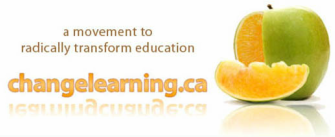This article by John Abbott and Terence Ryan appeared in the Spring, 1999 issue of Education Canada.
|
If young people are to be equipped effectively to meet the challenges of the 21st century it is surely prudent to seek out the very best understandings from current scientific research into the nature of how humans learn before considering further reform of the current system.
This article by John Abbott and Terence Ryan appeared in the Spring, 1999 issue of Education Canada.
1 Comment
Rather than thinking of the brain as a computer, cognitive scientists now utilize a far more flexible, biological analogy, where the brain is seen as a unique, ever-changing organism that grows and reshapes itself in response to use. In this article, John Abbott and Terence Ryan discuss how emerging brain research that supports constructivist learning collides head-on with many of our institutional arrangements for learning.
The article first appeared in the November 1999 issue of Educational Leadership. Human beings are communal by nature and living together – in communities – is our most common and most natural state of life. John Abbott discusses the fact that communities must be created and sustained by the conscious intentions and actions of their members, and that we must attend to health and vitality of our communities in order to thrive – and to learn! – as a species.
About this paper This paper was written for the first International Baccalaureate Organization Worldwide Electronic Conference in 2004, which had the theme of “Enriching Communities”. John Abbott, as a contributor/leader, noted that the theme suggested that “right now, many people fear that communities are not what they once were, or indeed might be in the future, and that somehow they have to be enriched.” He contributed four papers to the conference; with We Are a Small Group Species being the first in the series. If young people are to be equipped effectively to meet the challenges of the 21st century it is surely prudent to seek out the very best understandings from current scientific research into the nature of how humans learn before considering further reform of the current system.
This article by John Abbott and Terence Ryan appeared in the Spring, 1999 issue of Education Canada. A school education is meant to assist students in developing into active, productive members of the greater community. John Abbott explores the limitations of a classroom setting in preparing students for life in the greater world.
Are our schools places that encourage reflection? Do young minds formulate hypotheses that link a study of history with the issues of global warming or economic instability? Because that is what the world will need. Powerful, connected thinking. If not, we will have failed disastrously. John Abbott
Within the community at large there are an ever-increasing number of early retired people who are fit and strong and have many professional skills. At the moment they are largely wasted in terms of helping young people's learning... These people need to be recruited to work with young people. John Abbott, Terence Ryan
The challenge is to better understand metacognition - how we can make thinking visible and consciously direct our multiple learning strategies. This will give us the key to transform education. We really can learn how to learn, with a clarity that was not possible even five years ago. John Abbott
|
Categories
All
Archives
August 2015
|

 RSS Feed
RSS Feed
